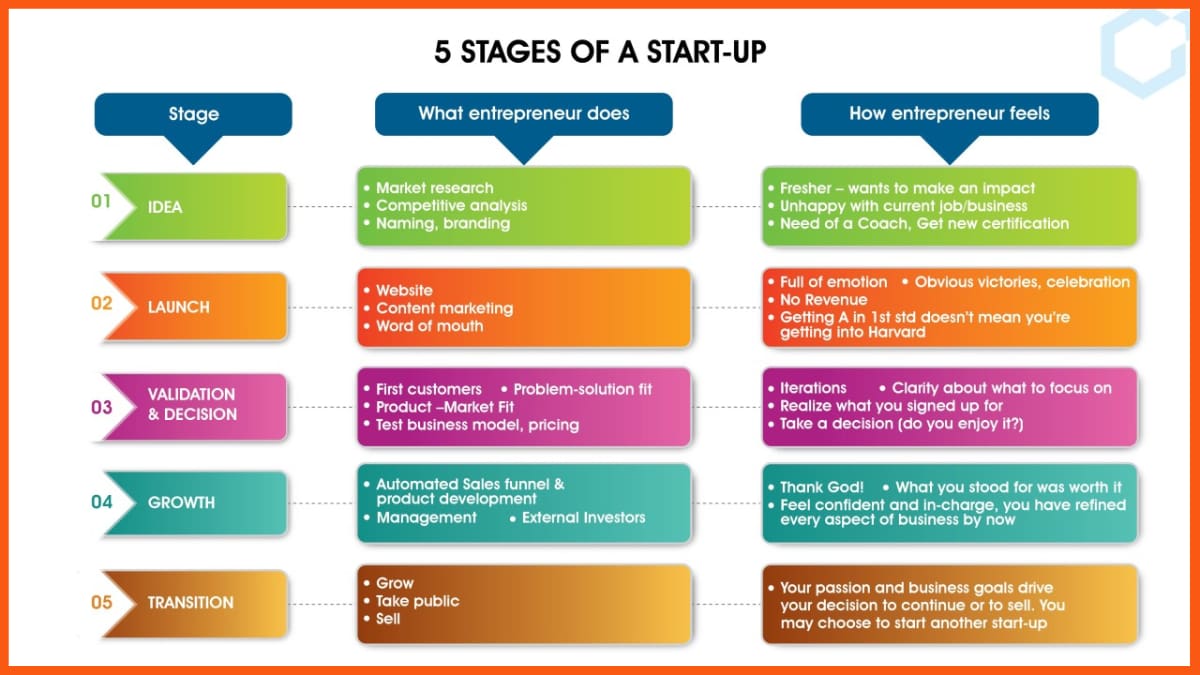Startup Software's Role in Harnessing the Power of Cutting-Edge Technologies for Business Success
Startup Software Development Guide
The period of digital innovation is widely referred to as the 21st century. It is playing an essential role in shaping the growth outlook of startup companies at a time when technology is changing rapidly. In order to stay ahead of their competitors, entrepreneurs have always innovated by means of research and development.
One of the key drivers of startup evolution is a flexible and agile approach to software development that enables businesses of all sizes to harness the power of cutting-edge technologies for success. Additionally, the fast-paced nature of startup software development can bring its own stresses, particularly when it comes to managing complex projects with tight deadlines.
In this startup software guide, we are going to discuss the details of the development process for companies’ business purposes and the bottlenecks to be paid attention to.

The Role of Digital Innovation in Startup Evolution
Leveraging Technology Trends: Key Software Developments
Scaling with Software: Strategies for Managing Rapid Growth
Enhancing Customer Experience: Personalization and Automation
Building a Tech Stack for Success: Essential Tools for Startups
Overcoming Challenges: Addressing Security and Scalability in Software for Startups
The Role of Digital Innovation in Startup Evolution
The fast-paced rise of technology has only made digital innovation indispensable for startup success. With constantly-evolving markets and emerging technologies, digitalization is one of the key premises for startup evolution.
Increasing efficiency is a major consequence of innovation in the growth of startups. Adequate systems reduce their costs and resources as well as improve the way they operate. Digital innovation enables entrepreneurs to handle routine and repetitive tasks that otherwise would require a lot of time and money. This would enable them to concentrate their resources on more critical tasks, which could result in growth.
Innovation also results in the creation of new products and services. In the context of research and development of new solutions, startup software benefits include discovering and solving market gaps that will allow them to create new products or services. A good app can also make it easier for entrepreneurs to improve existing products or services, so they are more innovative and user-friendly than their competitors.

Digitalization also gives entrepreneurs an incentive to step up their marketing efforts. These entrepreneurs can collect information about their customers' demographics, tastes, and purchasing behaviors with the aid of solutions that will enable them to refine marketing campaigns. This makes it possible for startups to launch more focused, efficient advertising campaigns that can draw in new customers and drive growth.
Leveraging Technology Trends: Key Software Developments
The growing popularity of cloud computing is one of the most important developments that entrepreneurs should be focusing on. In addition to cost savings, higher flexibility, and increased scalability, cloud computing provides a number of startup software benefits. The ability to use cloud computing resources quickly and easily enables entrepreneurs to make the necessary progress in developing and scaling their products and services.
The growing acceptance of AI and ML technology is also a major trend. The use of this technology could enable entrepreneurs to simplify different business processes, improve customer service, and even develop entirely new products. You can use artificial intelligence and machine learning to draw up personalized recommendations and forecasts, make automated repetitive tasks more efficient, as well as improve the whole customer experience.

Another trend on the list that should be taken into account by entrepreneurs is blockchain technology. With the use of blockchain technology, entrepreneurs are able to build decentralized applications, enhance transparency and security, and come up with completely new business models. For example, solutions to manage supply chain security and transparency can be achieved through the use of transformational technologies such as blockchain technology or by enabling peer-to-peer transactions with no intermediaries needed.
The development of applications based on MobileFirst should also be taken as a startup software benefit. Mobile applications are going to be in high demand as the use of smartphones and tablets increases. MobileFirst applications, which can be developed by new entrepreneurs to provide their customers with a simple and seamless mobile experience, are enabling them to tap into this growing trend.
Scaling with Software: Strategies for Managing Rapid Growth
Managing the increased demand for goods and services can be hard when a company is beginning to scale up. Moreover, while facing increased competition and evolving customer needs, quality and efficiency need to be maintained. Effective scaling strategies are needed to keep pace with the rapid growth of new businesses.
1. Automation
In order to manage the rapid evolution and growth of startups, automation can be an effective tool. Companies can save time and resources while at the same time strengthening accuracy and efficiency through the automation of some processes. A broad range of tasks, from invoice processing to customer support and marketing, may be carried out using automation tools. Startup software's role is to let companies focus on more important activities that are driving growth and differentiation through the automation of common tasks.

2. Scalable Cloud Server Infrastructure
There are a number of advantages for young entrepreneurs when it comes to cloud infrastructure. In response to evolving demand, they can use cloud computing infrastructures as a rapid way of expanding their systems. In addition, the scale of cloud infrastructure makes it easy for startups to limit their initial capital expenditure because they do not have to pay solely for what they need. This will allow startup companies to manage their budgets more effectively while keeping pace with the growth of their businesses.
3. Collaborative Tools
It is important to have the appropriate instruments in place for facilitating cooperation, given that many teams work on a wide range of projects. In order to facilitate a team's communication, collaborative tools like Project Management Software, Messaging tools, and Video Conferencing may be useful. These tools can be used to take care of remote teams, which are becoming more prevalent in today's business world.
4. Big Data Analytics
Another essential startup software role is to manage quick growth using big data analysis. In collecting and analyzing huge volumes of information, entrepreneurs are able to get an insight into customers' behavior, trends in the sectors they serve, as well as a number of important factors that affect their business. This provides entrepreneurs with the opportunity to make data-driven decisions about product development, marketing, and sales. In addition, businesses can be helped to react quickly to changing market conditions by these insights.

Enhancing Customer Experience: Personalization and Automation
By implementing personalization and automation through their applications, startup software can provide their customers with a seamless, efficient, and personalized customer experience. This approach will have several benefits for startups, including:
- Improved customer satisfaction: Personalization and automation will help provide a tailored and efficient service that meets the individual needs of their customers, which will lead to happier customers.
- Increased customer loyalty: By building strong relationships with their customers through personalization, companies can retain their existing customer base and build customer loyalty in the long term.
- Better customer retention: Automation allows startup software to be more efficient and reduce errors, providing a more reliable service that customers can depend on, which leads to better customer retention.
- Enhanced reputation: Personalization and automation will lead to consistent and high-quality customer experiences, which can help enhance the startup’s software reputation, leading to increased brand recognition and sales.
Building a Tech Stack for Success: Essential Tools for Startups
First of all, a customer relationship management (CRM) system is an essential element in any successfully managed technology stack. A CRM system such as HubSpot or Salesforce can provide a way to manage customer relationships, track leads, and automate sales processes. Using CRM makes it easier for entrepreneurs to connect with clients and prospects, thereby increasing the likelihood of closing a deal. Additionally, this data can also be used for improving the marketing strategies of entrepreneurs.

Secondly, it is important to have the right project management digital solution, such as Asana or Trello, in order to take full advantage of their day-to-day operations. These tools allow a team to remain structured, prioritize tasks, and cooperate on projects at the same time. With powerful integrations and easy-to-use interfaces, startup software helps optimize the company’s workflows and remain focused on its objectives.
Third, for the startup, it is essential to have accounting and finance solutions in order to be able to grow and scale. For the purpose of tracking expenses, handling invoices, and paying vendors, accounting solutions like Quickbooks or Xero are good options. In addition, creating budgets, tracking expenditures, and forecasting revenues can help businesses get a better handle on their finances by enabling them to explore potential areas for improvement through the use of Financial Analytics systems like Mint or Quicken.
Fourthly, it should be considered for companies to use human resources management systems such as Zenefits or Gusto in order to handle the complexity that arises from increasing numbers of employees. In order that entrepreneurs can pursue other key areas of their business, HR solution simplifies and frees up time and resources by simplifying tasks such as payroll processing, benefit administration, or compliance.
Lastly, it is important for entrepreneurs to consider integrating Analytics and Business Intelligence into their tech stack. In our startup software guide, we can recommend Google Analytics or Tableau to monitor website traffic, analyze user behavior and find ways of increasing the level of customer engagement.
Overcoming Challenges: Addressing Security and Scalability in Software for Startups
Security is one of the most pressing problems facing startup software. Providing robust protection options is no longer optional in view of the increasing cyber attacks and the possibility that sensitive customer information could be compromised. In order for their solutions to be secure, startups have to take practical steps including the introduction of encryption, two-factor authentication as well as other security measures in order to guard against unauthorized access. Also, they need to be aware of the new and evolving threats that may emerge, like an insider threat or social engineering attack; ready for their adaptation and response as necessary.

Scaling up is a further major challenge faced by startup software solutions. In order to cope with an increased amount of traffic and data, entrepreneurs must ensure their apps can deliver both performance and reliability in the context of growth and expansion. The development process, which includes selecting appropriate programming languages, frameworks, and cloud infrastructures, must be well thought through and thoughtfully planned.
Startups must proactively address challenges of security and scale for their success within today's technology landscape. Trusted app development companies are able to help in the creation of products that satisfy the highest quality standards while at the same time achieving value for their stakeholders by adopting a culture of continuous improvement and investing in appropriate tools and resources. The achievement of these challenges can be made possible thanks to the right commitment and expertise.
Conclusion
In today's world, technology plays an enormous role in every aspect of our lives. Therefore, to achieve business success in the digital age, it has become essential to harness the power of cutting-edge approaches.
Furthermore, working with a reputable custom software development company ultimately saves both time and money. When companies try to build solutions in-house, it can take valuable time and resources away from their core operations. By outsourcing software development, you eliminate the need to train or hire dedicated development staff, thus reducing costs and allowing them to stay focused on their primary business goals.

Must have tools for startups - Recommended by StartupTalky
- Convert Visitors into Leads- SeizeLead
- Website Builder SquareSpace
- Run your business Smoothly Systeme.io
- Stock Images Shutterstock






